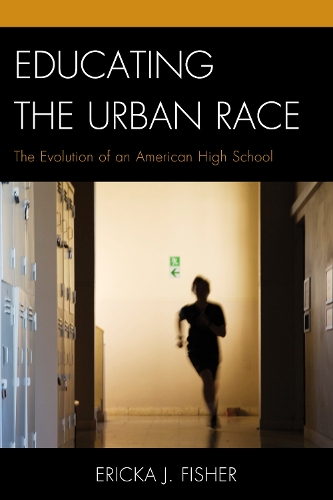
Educating the Urban Race: The Evolution of an American High School
(Paperback)
Available Formats
Publishing Details
Educating the Urban Race: The Evolution of an American High School
By (Author) Ericka J. Fisher
Bloomsbury Publishing PLC
Lexington Books
29th August 2016
United States
Classifications
Professional and Scholarly
Non Fiction
Higher education, tertiary education
Social discrimination and social justice
Ethnic studies / Ethnicity
Racism and racial discrimination / Anti-racism
370.1170973
Physical Properties
Paperback
146
Width 152mm, Height 226mm, Spine 11mm
218g
Description
For America's children, for students, growing up urban has become a tainted label. By acquiring one simple label, the urban student has become the other, illegitimate, different from the norm. The urban student has indeed been bastardized in America. The constructs of race/ethnicity, socioeconomic status, and social capital combine to oppress the urban student. This text takes the suggestion that urban has become inextricably linked to race one step further and proposes that it has become a socially constructed category in its own right that serves to disempower all those who self-identify or are labeled as such. The structure of this book seeks to give the reader a series of rich contexts in which to understand how the American urban student and urban school came to fruition. Through the use of historical and quantitative data, interviews and observations, Fisher provides a comprehensive view of the many factors at play that merge to create the urban high school.
Reviews
In a book which leads the reader briskly through layers of historical, social, institutional, and personal experience, Ericka Fisher frankly yet respectfully appraises urban education as reflected in Burncoat High School in Worcester, MA, revealing the ways in which equity and opportunity are undermined for some groups as compared to others while enhanced for all through the power of care, mutual understanding, and authentic relationship between adults and students. Her book is a thoughtful and thought-provoking study of urban schooling. -- Thomas Del Prete, Clark University
Sometimes we have to look closely before we can understand how many factors undermine adolescents as they move closer to adulthood and why its so much more damaging for those who come without all the advantages that money and social status bring with them. Fisher has put together a moving account of why being at risk will require many difficult decisions. Building trustful relationships between schools and young people cannot happen without rethinking high schools from the bottom up. -- Deborah Meier, New York University, founder of New York City's Central Park East public schools and Boston's Mission Hill school
Author Bio
Ericka J. Fisher is associate professor of education at the College of the Holy Cross.
